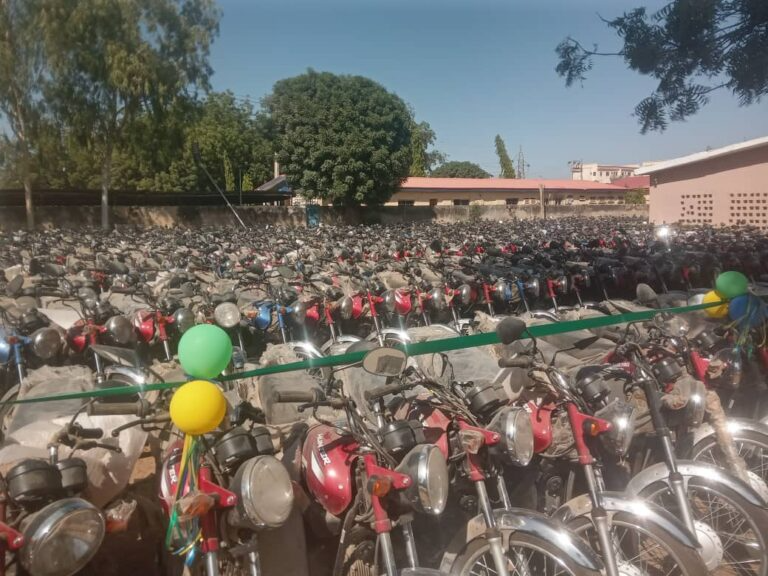Nigeria’s economy is charting a path from the turbulent “Red Zone,” defined by acute instability and uncertainty, to the cautious “Amber Zone” of recovery, where faint signs of progress emerge amid persistent challenges. The ultimate goal is the “Green Zone,” a realm of stability and prosperity. However, this journey is fraught with obstacles that demand innovation, unity, and steadfast resolve. Despite optimistic macroeconomic indicators, such as a 3.19% GDP growth rate in Q2 2024 driven by the services sector, the lived realities of many Nigerians paint a contrasting picture of stagnation and struggle.
The World Bank estimates that 104 million Nigerians live below the poverty line, while youth unemployment exceeds 42.5%. This disconnect between economic data and societal realities underscores the country’s structural challenges. Many Nigerians remain disillusioned about the economy, and for good reason. The widening gap between economic projections and lived experiences calls for a fundamental reassessment of policies and their implementation to foster inclusive growth.
Barriers to Economic Recovery
One of the primary barriers to economic recovery is the pervasive mistrust of government-released statistics, policies, and economic management. This scepticism stems from a history of perceived inefficiencies, corruption, and inequality. For instance, an Oxfam International report in 2023 revealed that 0.003% of Nigerians own more wealth than 107 million of their compatriots combined. Such stark disparities question the validity and inclusivity of economic policies.
Reports from the Auditor-General that highlight irregularities in public spending compound this mistrust, further eroding public confidence.
This lack of trust makes it difficult for the government to garner support for necessary economic reforms. It also exacerbates the disconnect between official narratives of progress and Nigerians’ everyday struggles.
Both foreign and local investor confidence have been significantly undermined, reflecting broader systemic issues. Weak property rights, judicial inefficiencies, policy inconsistencies, and corruption have created an unwelcoming business environment. While Nigeria saw an increase in foreign direct investment (FDI) to $3.4 billion in Q1 2024, the contribution of FDI to capital importation remains alarmingly low. This indicates that the investment climate is not conducive to attracting sustainable, long-term capital.
Efforts to improve the ease of doing business, such as establishing the Presidential Enabling Business Environment Council (PEBEC), have yielded limited results. Bureaucratic bottlenecks and inconsistent policies deter local entrepreneurs and foreign investors, stifling job creation and economic resilience.
The volatility of the Naira has compounded Nigeria’s economic woes. Since the unification of exchange rates in 2023, the Naira has depreciated by over 200% against the dollar, with parallel market rates exceeding N1,700 per dollar as of late 2024. This instability has far-reaching implications, including eroded purchasing power, deterred investment, and exacerbated inflation, which now stands at 33.88%.
The Central Bank of Nigeria’s (CBN) inability to stabilise the Naira raises questions about its competence and independence. A broader strategy is needed to address the underlying causes of currency instability, including overreliance on oil exports and a lack of diversification in foreign exchange earnings.
Nigeria’s dependence on oil exports, which account for over 90% of foreign exchange earnings, underscores the urgency of economic diversification. The agriculture sector, employing 36% of the workforce but contributing less than 5% to exports, offers significant untapped potential. Nigeria can boost export revenues and reduce its vulnerability to oil price fluctuations by investing in agro-processing industries and modernising supply chains.
Additionally, initiatives to improve USD liquidity by mopping up foreign currency outside the banking sector could help stabilise the Naira. However, structural reforms must accompany these efforts to ensure long-term economic stability.
Infrastructure remains a critical obstacle to Nigeria’s economic advancement. Despite being Africa’s largest economy, Nigeria generates insufficient electricity for its population, forcing businesses and households to rely on expensive and polluting alternatives. The World Bank estimates that unreliable electricity supply costs the economy $29 billion annually.
Innovative solutions, such as decentralised renewable energy systems, are essential to addressing this deficit. Similarly, investments in transportation infrastructure, particularly rail networks, could significantly reduce logistical costs and promote regional trade. Expanding projects like the Lagos-Ibadan railway can be a model for integrating efficient transport systems into broader economic strategies.
Paradox of Economic Growth.
The most glaring indictment of Nigeria’s economic trajectory is the widening gap between the rich and poor. While GDP growth has benefited the wealthiest segments of society, most Nigerians have seen little to no improvement in their quality of life. Policies like the Value Added Tax (VAT), disproportionately affecting low-income households, exacerbate these disparities.
To promote inclusive growth, Nigeria could consider implementing a Universal Basic Income (UBI) pilot programme targeting its most vulnerable populations. Similar initiatives in Kenya have demonstrated their potential to improve financial stability and productivity. Such measures could serve as a safety net while stimulating local economies.
With a median age of 18, Nigeria’s youthful population represents a demographic dividend that could drive economic transformation. However, high youth unemployment—exceeding 42.5%—remains a significant challenge. Initiatives like the Andela Fellowship, which trains young Nigerians in software development, have shown the potential of skill development programmes.
Expanding these initiatives to include vocational training in renewable energy, agribusiness, and manufacturing could equip young Nigerians with the skills to thrive in emerging industries. Encouraging entrepreneurship through simplified business registration processes, tax incentives, and innovation hubs could further unleash the potential of Nigeria’s youth.
Currency instability and economic hardship have discouraged savings, undermining domestic investment. Many Nigerians, especially those in rural areas, lack financial literacy; they lack sufficient income to save. Addressing this issue requires stabilising the Naira and creating economic opportunities that enable families to move beyond subsistence.
Nigeria’s economic challenges are deeply interconnected, requiring a comprehensive and innovative approach. Restoring trust in economic policies and institutions is essential for sustainable growth. Policymakers must prioritise transparency, inclusivity, and resilience, embracing bold reforms that align with ordinary Nigerians ‘ aspirations.
Key focus areas should include fostering an enabling environment for investment, addressing infrastructure deficits, promoting economic diversification, and tackling income inequality. By leveraging technology and actively engaging citizens and stakeholders, Nigeria can build a resilient and inclusive economy.
Through these concerted efforts, Nigeria can move from the “Amber Zone” of cautious recovery to the “Green Zone” of enduring prosperity, fulfilling its potential as an economic powerhouse and a beacon of hope for its people.

 5 days ago
1
5 days ago
1















 English (US) ·
English (US) ·